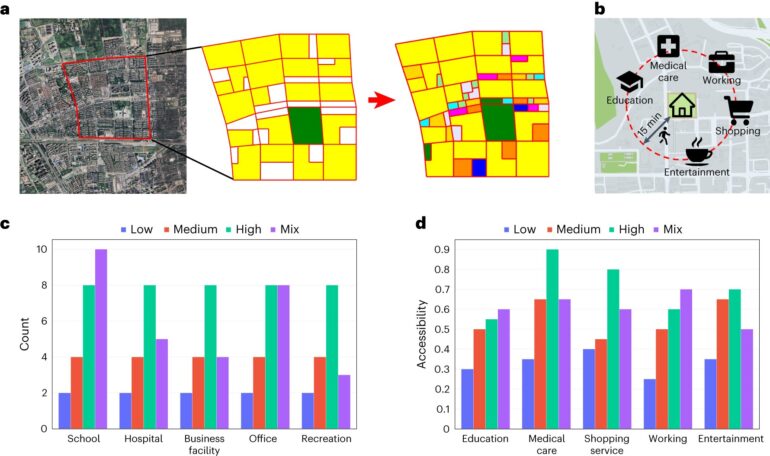TL;DR:
- AI outperforms human experts in urban planning at Tsinghua University.
- Study in Nature Computational Science highlights AI’s advantages.
- Paolo Santi of MIT Senseable City Lab commends the achievement.
- Shift from organic city growth to systematic urban planning.
- AI reduces time, enhances design quality, and promotes sustainable living.
- AI’s “15-minute city” concept proves transformative.
- Urban planners are freed from mundane tasks to focus on conceptualization.
Main AI News:
In a groundbreaking revelation, a team of urban planners and information scientists hailing from Tsinghua University in China has achieved a remarkable milestone. Their AI-powered urban planning system has demonstrated superior prowess compared to human experts in conceiving urban development designs. This noteworthy discovery, documented in the esteemed journal Nature Computational Science, delves into the intricacies of formulating an ideal urban blueprint and meticulously assesses the AI system’s performance. Complementing this significant achievement, Paolo Santi, from the renowned MIT Senseable City Lab, offers insights in a News & Views piece within the same journal issue, expounding on the team’s remarkable endeavors.
Throughout much of history, the growth of cities has followed an organic trajectory, with immediate needs dictating the course of development. Urban planners and engineers valiantly endeavored to cater to these needs, often resulting in haphazard urban expansions and suboptimal outcomes. In recent times, a paradigm shift has taken place, with city officials and planners adopting a more systematic approach. They craft designs for burgeoning urban areas that take into account factors such as livability and pollution control, ushering in the era of urban planning as a precise science, accompanied by a cadre of professional urban development experts. Yet, this science is not without its complexities, particularly as the scale of new developments burgeons. Enter the innovative solution presented by this research team—a novel integration of artificial intelligence to alleviate these challenges.
In the development of their AI system, the team embraced the concept of the “15-minute city.” This visionary concept envisions a community where residents can access essential services within a 15-minute radius from their homes. Such an approach not only enhances the quality of life by reducing travel times but also significantly curtails air pollution. To train their AI system, the researchers leveraged existing human-crafted plans and incorporated elements deemed as hallmarks of excellent design, including the integration of parks, lush greenery, bicycle paths, and recreational spaces.
Once the AI system took shape, the research group embarked on designing a small community within a 3×3 grid city block. This initial foray allowed them to fine-tune the system, leading to noteworthy improvements. Subsequently, they gradually expanded the scope, tackling larger development projects while scrutinizing the outcomes with keen eyes.
The outcomes of this innovative venture were nothing short of astonishing. The AI-generated plans consistently rivaled or surpassed those crafted by human hands. Equally impressive was the dramatic reduction in time, with tasks that once consumed hours now being executed in mere seconds. Importantly, the research team emphasizes that their AI system is not intended to replace human urban planners but rather to liberate them from the mundane aspects of urban planning. This liberation empowers urban planners to channel their energies toward conceptualizing holistic urban visions, unburdened by the minutiae of the process. The future of urban planning is undoubtedly being reshaped by the limitless potential of artificial intelligence, with human expertise and innovation leading the way.
Conclusion:
The successful integration of AI in urban planning, as demonstrated by the Tsinghua University team, signifies a paradigm shift in the field. This development opens up new opportunities for urban planning professionals to enhance their efficiency and focus on strategic conceptualization, ultimately benefiting the urban development market by streamlining processes and improving the quality of urban designs.

